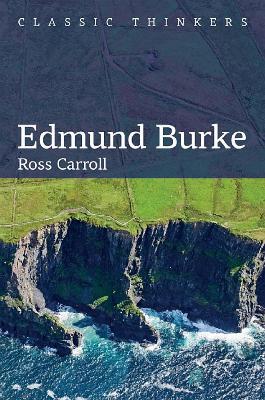Discover New Work In Intellectual History
New Work In Intellectual History

98 Episodes
Reverse
In this episode, Seungeun Lee interviews Professor Robert Frost, the
Burnett Fletcher Chair in History at Aberdeen University. Professor Frost
gave a lecture at the Institute of Intellectual History on 17 September
2025, on which day he also sat down for an in-depth interview about his
ongoing, multi-volume work on the Polish-Lithuanian Union, 1385-1569.
What is the relation between philosophy’s claim to disinterested universal
rational inquiry and its historical existence as an assemblage of
apparently sectarian schools? This is the question that formed the topic
for a conversation that Valery Vino initiated with Ian Hunter.
In this episode, Derek van Voorst speaks with Dr Edward Jones Corredera,
who is senior research fellow at the Max Planck Institute for Comparative
Public Law and International Law and assistant lecturer at the Universidad
Nacional de Educación a Distancia (Madrid). The discussion focused on his
recent book, Odious Debt: Bankruptcy, International Law, and the Making of
Latin America (OUP, 2024), although it also covered topics such as the
theoretical framework of 'odious debt', historical debt, future
developments of debtor nations, and so forth.
Roots and Branches: First episode out now.
Intellectual Historian Richard Whatmore (University of St Andrews) explains
why the Enlightenment, 18th century republicanism and the history of free
states matter for today’s global politics.
Subscribe to Roots and Branches on Spotify or iTunes by visiting the
Episode Website below.
Get ready for Roots and Branches, the new ideas podcast from the Institute
of Intellectual History at the University of St Andrews. In this
introductory episode, host Selma Sondern explains what Intellectual History
is, why it matters, and what to expect when Roots and Branches launches on
1 July 2025 with Prof Richard Whatmore. Subscribe to the podcast on
Spotify and iTunes by visiting the Episode Website below.
In this episode, Seungeun Lee speaks with Professor Davide Cadeddu
(University of Milan) about his forthcoming book Classics of Historiography
in Historical and Global Perspective (CUP), which will be published as part
of the CUP ‘Elements in Critical Heritage Studies’ series.
The dark history of eugenic thought in Germany from the nineteenth century
to today―and the courageous counter-voices.
In this episode, Robin Mills speaks with Dagmar Herzog about her new book
The Question of Unworthy Life: Eugenics and Germany’s Twentieth Century
(Princeton University Press, 2024). Between 1939 and 1945, Nazi genocide
claimed the lives of nearly three hundred thousand people diagnosed with
psychiatric illness or cognitive deficiencies. Not until the 1980s would
these murders, as well as the coercive sterilisations of some four hundred
thousand others classified as “feeble-minded,” be officially acknowledged
as crimes at all. The Question of Unworthy Life charts this history from
its origins in prewar debates about the value of disabled lives to our
continuing efforts to unlearn eugenic thinking today.
In this episode, Robin Mills speaks with Elad Carmel about his new book
Anticlerical Legacies - The deistic reception of Thomas Hobbes, c.
1670–1740 (Manchester University Press, 2024). The conversation touches
upon a wide range of topics related to 17th-century religion, reception
history, and deism.
In this episode, Seungeun Lee speaks with Isaac Nakhimovsky about his new
book The Holy Alliance: Liberalism and the Politics of Federation
(Princeton, 2024).
The book challenges the prevailing view of the Holy Alliance as a
reactionary and illusory endeavor, as well as the idea of a linear
progression of liberalism in opposition to such deviations. Nakhimovsky
reconstructs the discourse around a liberal vision of a European
federation, where reformers and patriots from smaller European states, as
well as abolitionists beyond Europe, looked to Russia as the potential
guarantor of a peaceful order.
In this interview, Ross Carroll (Dublin City University) talks about what's
new and interesting in scholarship on Edmund Burke, following writing a new
introduction to the great Irish thinker for Polity's Classic Thinkers
series.
Mark Garnett, Senior Lecturer in Politics at Lancaster University, has a
bone to pick with commentators on the British conservative tradition and
the British Conservative Party. In this wide-ranging conversation, he
discusses how so often what the Party’s ideology is taken being the same
thing as conservative political thought. But for most of its history, the
Conservative Party has been anything other than conservative. Instead, we
might understand the Party’s changing ideology in terms of the overlapping
and competing perspectives of liberalism, nationalism and pragmatism. And
we might also think again about what ‘conservative political thought’
actually has been in England the past two centuries.
In this bonus episode, we bring an interview with Professor Peter Gordon
about the philosopher and social theorist Theodor Adorno (1903 - 1969). The
interview is part of a new podcast series on German Intellectual History
entitled Zeitgeist und Geschichte. Discover more episodes here and
subscribe on iTunes or Spotify.
In this episode, Richard Whatmore speaks with Aurelian Craiutu about his
new book Why Not Moderation? Letters to Young Radicals (CUP, 2023).
The book challenges the conventional image of moderation as a “simple
virtue for lukewarm and indecisive minds, searching for a fuzzy center
between the extremes.” Instead, he shows moderation to be a complex virtue
with a rich tradition and unexplored radical aspects. With its epistolary
form, the book presents an imaginary dialogue between two young radicals
and a passionate moderate, thereby outlining the distinctive political
vision undergirding moderation in modern America.
In this episode, Ojel L. Rodriguez Burgos interviews the historian of
political thought Professor Ferenc Hörcher about his new book Art and
Politics in Roger Scruton’s Conservative Philosophy (2022).
In this wide-ranging interview, Richard Bourke (King’s College Cambridge)
discusses not only Hegel’s anatomy of the modern world, but how Hegel’s
reputation changed over the twentieth century. In doing so, we discuss the
significance of not only Hegel’s thought to contemporary society, but also
the study of the history of political thought in general.
In this episode, Emilie Aebischer speaks with Prof Michael Sonenscher about
his most recent book After Kant - The Romans, the Germans and the Moderns
in the History of Political Thought (PUP, 2023).
In the aftermath of the Second World War, many prominent liberals looked
towards the future with eyes of disillusion and fear. In response they
jettisoned key progressive ideals of the Enlightenment, such as equality
and perfectibility, and formulated a defence of liberty in opposition to
communism and totalitarianism more generally. In his new book, Samuel Moyn
argues that the intellectual architects of Cold War liberalism truncated
the liberal tradition and thereby left a disastrous legacy, leaving
liberals unable to address the problems that face us today.
In this episode, Robin Mills speaks with Matthijs Lok (Amsterdam) about his
recently published book Europe against Revolution - Conservatism,
Enlightenment, and the Making of the Past (OUP, 2023). In this book,
Matthijs explores what counter-revolutionary thinkers in the decades around
1800 thought about Europe. Many of his conclusions are surprising, with
critics of the French Revolution often being proponents of cultural and
religious diversity, cosmopolitanism and political moderation that they
viewed as unique to Europe. They believed themselves to be the true heirs
of the European Enlightenment, rather than the radical materialist atheists
who had taken over France.
In this episode, Robin Mills speaks with Anton Jäger and Daniel Zamora
Vargas about their new book Welfare for Markets - A Global History of Basic
Income (UCP, 2023). In their book, Jäger and Vargas trace the history of
basic income from its rise in American and British policy debates following
periods of economic and political crisis to its modern popularity among
‘techno-populists’ in Silicon Valley. They describe how the idea gained
traction in the United States and Europe in the 1960s as a market-friendly
alternative to the postwar welfare state and how interest in the policy has
grown in the wake of the 2008 financial crisis and again after the COVID-19
crisis.
In this episode, Robin Mills speaks with Fredrik Albritton Jonsson and Carl
Wennerlind, authors of Scarcity - A History from the Origins of Capitalism
to the Climate Crisis (HUP, 2023). In this book, modern economics is shown
to be founded on a particular view of scarcity, in which human beings are
said to be possessed of indefinite desires. Society must therefore
facilitate endless growth and consumption – regardless of the limitations
of the natural environment. Jonsson and Wennerlind examine the intellectual
origin and context of this vision of scarcity and demonstrate its
historical contingency, even in the age of capitalism. It reflects the
triumph of infinite-growth ideologies at the expense of all other
conceptions of scarcity that sought to live within nature’s constraints.
























